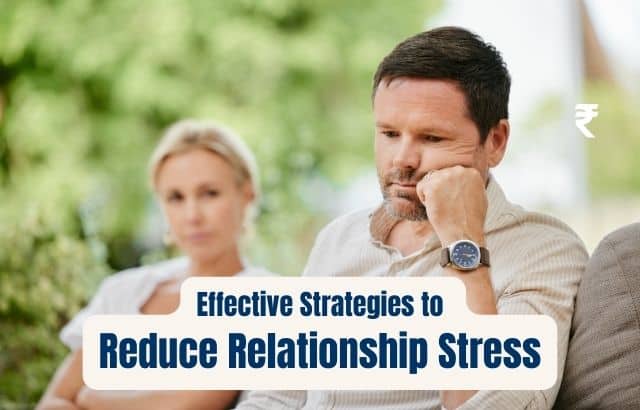Maintaining strong and resilient relationships is crucial for your overall health and well-being. It’s important to acknowledge that even the strongest relationships can encounter challenges. Building a happy and healthy partnership requires effort and work. It’s inevitable that issues will arise, but the key is to focus on creating a meaningful future together rather than dwelling on the past.
Relationships are such an important part of your health and well-being that it’s important to spend time, making sure they are as resilient as possible.
Also, the fact of the matter is that, even the strongest relationships face challenges.
You’ve heard it a million times, but it bears repeating: Yes, even the strongest relationships face challenges.
Building a happy, healthy partnership takes work. Issues are a part of life and a part of being in a relationship.And the goal is to not fixate on the past or anything, but work to create together in a meaningful way.
“We are most alive when we’re in a relationship”, Quotes Hirav Shah, Thought Leader, Opinion Guru & Astro-Business Strategist.
Shah adds, “the relationship being spoken here, is across all spectrums“.
So how do you save your relationships from stress ?
Here are 12 strategies as suggested by Hirav Shah, some powerful keys to heal yourself which you can apply at home and at work, across all spectrums of your relationships:
Table of Contents
12 strategies for Better Relationships
1. Practice Empathy
The ability to understand another person’s experiences and emotions is a powerful relationship tool. In addition to promoting forgiveness, empathy is also a hallmark of resilience. Empathetic people tend to be less selfish and have a genuine interest in the well-being of others.
2. Understand and Take It Easy
If you tend to get angry with people fast, take a few seconds before answering someone. Try to understand where the other person is coming from and understand her possible reasons.
3. Communicate More Openly
If you are confused, ask. If something is on your mind, say it in a kindly manner. Communicate, communicate & communicate.
4. Be Genuinely Interested
Be genuinely interested in other people, learn about their day, their family etc. Get into nice conversations with them and remember the things they are doing, so you can refer back to them.
5. Learn Acceptance
It’s important to learn that some situations you simply cannot change and it is not worth worrying about them.
6. Learn breathing exercises
A typical reaction to stress is more shallow breathing. Your whole body changes when you are stressed, your shoulders come forward back isn’t straight and your breathing is more shallow.In order to force your body out from this reaction, stand up straight and start taking this breath. This will help you to activate your relaxation response.
Another great thing about breathing exercises, is that you can do them anywhere and anytime. You don’t need anything for them, you can even stop on the street and start practicing.
7. Create Good Morning Rituals
Some people think that morning rituals are over-glorified but in reality they are really useful. Many of us tend to start the day stressing by thinking on all your to-dos or issues pressuring your mind. By creating positive and healthy morning rituals, you can set your mind on the right track and get your heart pumping.It is indeed important to do some mental and physical exercises in the morning.
8.Have a Hope
Whether you’re dealing with a sick child, contemplating a divorce or break-up, or wondering how you’re going to pay the bills, resilient relationships require hope.
The three elements of hope include having goals (identifying pathways), feeling empowered to shape your daily life (remembering where you have control, influence, and leverage), and identifying multiple avenues toward making your goals happen (think of the obstacles and ways around them). Hope has been shown to be a strong predictor of life satisfaction, even being called a symptom of happiness.
9. Be An Active Listener
To save your relationship from stress, you need to learn to listen and actively do. Unfortunately, most people focus more on the speaking than they do on the listening. Whether in a one-on-one conversation with your partner or a group meeting or classroom or with your client, focusing on what others are saying allows you to present yourself more effectively. When you listen correctly, you also learn more. Listening is a sign of respect, Tells Hirav Shah.
10. Reframe Thinking
Reframe your thinking during tough times. When a relationship hits a rough patch, it can be easy to think pessimistically. Thinking optimistically doesn’t mean you ignore the bad; rather, it’s about being realistic. Optimistic thinkers are able to identify solutions that haven’t yet been tried and immediately think about what they can control, influence, or leverage.
11. Be There When Things Go Right
Human beings are hard-wired to notice and remember negative news and events.That’s why you stand at the ready when your partner says, “Hey, I have a problem!” But what do you do when your work colleague, partner or child says, “I’ve got great news?”
How you respond to the good news is as important for the health of your relationship as how you respond to bad news. Be there when things go right, Advices Shah.
12. Be Upfront About Your Expectation
Manage expectations, basically. Have a discussion with the other party or your partner and set ground rules that take into account your exclusiveness and commitment to each other.
Being honest and upfront about your expectations from the beginning can prevent things from going wrong down the road.
Final Thoughts
Developing high-quality relationships is critical to a happy, healthy and resilient life, else you would be in a constant state of stress or thereby fear, Opines Shah. You must be wise with how to stop living in fear not for you alone but for your partner also.
High-quality relationships provide four key benefits : they are empowering, they provide a sense of trust, you can be your authentic self, and they are built on respect.
Few tips to ensure a healthy work-life balance, Be wise with the fact it is directly related to your relationship.
At work, having high-quality connections leads to quantifiable gains in performance. Workplace friendships are one of the strongest predictors of productivity, and those people who say that they have strong, supportive colleagues at work get sick less often, are more focused, are more loyal to their organizations and change jobs less frequently.
At home, a healthy relationship with your partner means everything. Good relationships make you more resilient to stress and literally impact how well you age.
If your relationships are doing great, what more you need ??


































